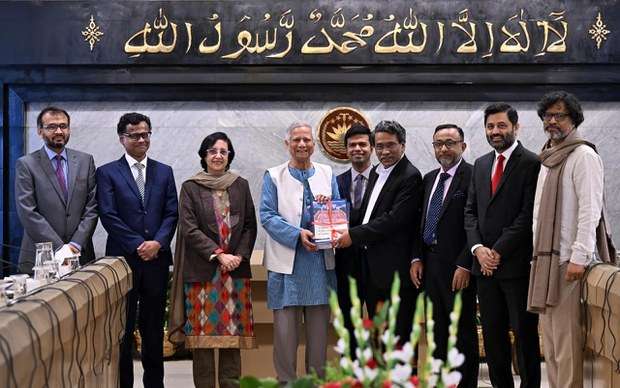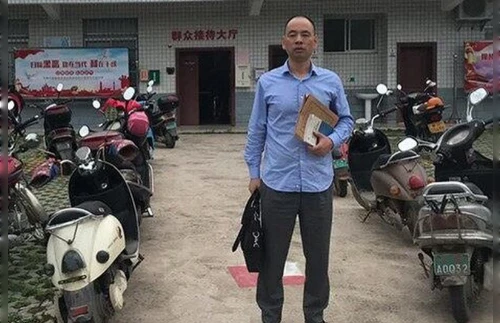Constitutional Reforms Commission, which submitted proposals on Wednesday, sought to “strike a balance” in presidential, prime ministerial powers.
Kamran Reza Chowdhury/Dhaka

A commission formed to propose measures to democratize the Bangladesh constitution after a mass uprising brought down the government last year has recommended drastically curtailing the prime minister’s powers – and replacing “secularism” with “pluralism” as one of the guiding governance principles.
The Constitutional Reform Commission and several other similar bodies were set up in October to recommend measures that could undo what many called the 15-year misrule of Sheikh Hasina, the prime minister who was ousted in August.
Four of these commissions on Wednesday submitted their reports with proposals for a slew of improvements to various institutions to Muhammad Yusuf, who heads the interim government set up after Hasina fled the country Aug. 5.
Yunus and others had said that the reforms were a prerequisite for holding national polls to form an elected government. That’s because Hasina had politicized state institutions; turned a blind eye to corruption from which she allegedly benefited; centralized power in the PM’s office; and left behind an economy in a shambles.
Chief Adviser Yunus tapped Bangladeshi academic Ali Riaz, a professor of political science at Illinois State University, to head the commission to reform the constitution.
“In line with the ideals of 1971 and a reflection of the people’s desire from the mass upsurge of 2024, we have recommended five fundamentals [governance principles]: equality, human dignity, social justice, pluralism and democracy,” Riaz said in a short video showing him presenting Yunus the proposals and encapsulating the main goal of proposed reforms.
“As a check-and-balance, we have [also] recommended creating a new body … to strike a balance between the power of the prime minister and the president,” he added without going into much detail.
The interim government and various political parties are scheduled to discuss the reform proposals next month and follow through on those approved by consensus. The full commission reports will be available to the public by Jan. 31, an administration adviser (akin to a national minister) told reporters.
Listed below are some of Riaz’s more than 60 proposed reforms to Bangladesh’s founding constitution of 1972:
1. Set a two-term limit for the post of prime minister and reduce the term of the legislature – and thereby the PM – to four years from five. Hasina was leading her fourth consecutive administration (since 2009) after winning a general election, which many local and international observers said were rigged.
2. Stipulate in the reformed or new constitution that the prime minister cannot simultaneously be his or her party’s chief or the leader of a directly elected legislature. Observers note that Hasina’s untrammeled leadership positions enabled her authoritarianism.
3. Establish a new body called the National Constitutional Council, which will be tasked with balancing the jurisdictions of the president and the prime minister, so the former is not a mere figurehead. A parliamentary affairs expert, Nizam Uddin Ahmed, criticized this proposal, saying it would be very difficult for the executive to function with limited powers.
4. Parallel to the division of powers, allow members of local government bodies to also elect the president instead of national lawmakers only – again to ensure institutional balance. But this would result in a situation like having “two parallel governments,” inhibiting governance, Ahmed told BenarNews.5wŕŵ
6. Ten percent of lower house seats must be from the youth, Riaz said without specifying the qualifying age. He didn’t say why this reform was proposed. However, it was a student protest that turned deadly and became a mass movement that ended the Hasina administration.
9. Allow the lower house of parliament to have two deputy speakers instead of just one, with the additional official nominated from the opposition. Hasina had effectively marginalized the opposition and muzzled critics of her administration. Many experts on political systemrrŕs said that without an opposition there is no democracy.
10. Nominate opposition members to head chairs of parliamentary standing committees – such as on foreign, affairs or human resources – again to spread the power but also ensure transparency in government policies.
Copyright ©2015-2024, BenarNews. Used with the permission of BenarNews.












